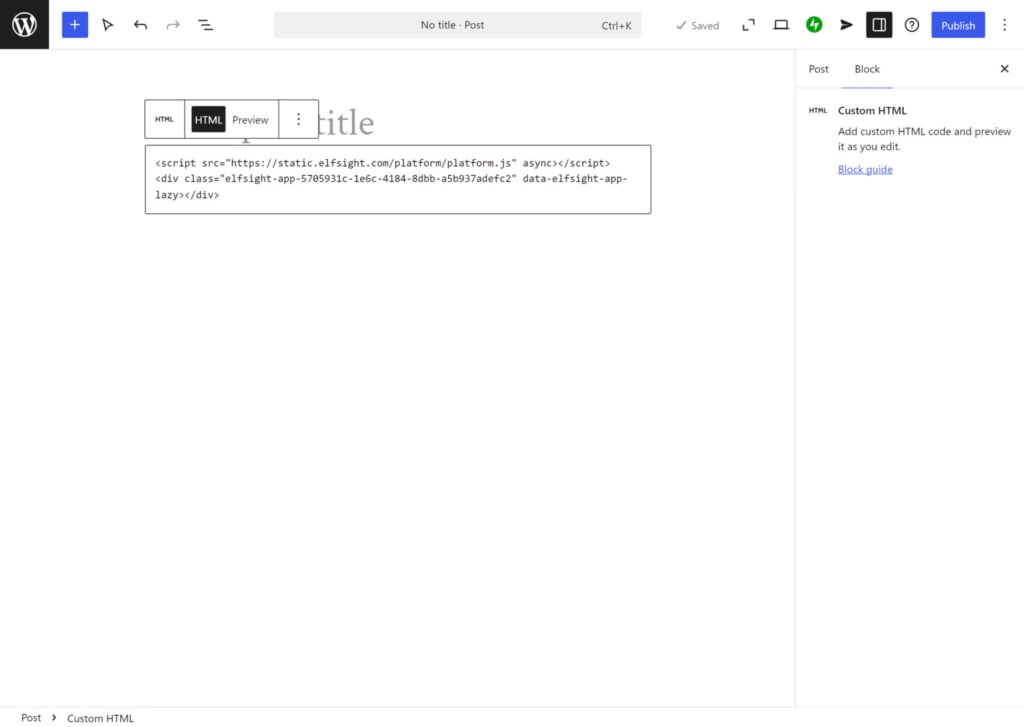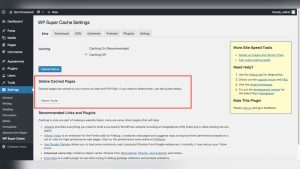Have you ever wondered how to create a button in WordPress that looks just right and functions perfectly? If you’ve been struggling to find the perfect way to add buttons to your WordPress site, you’re not alone.
Buttons are crucial for guiding your visitors where you want them to go, whether it’s to make a purchase, sign up for a newsletter, or simply read more content. But making them attractive and effective can seem daunting. Imagine having the power to craft these buttons exactly how you want them, without relying on pre-made templates or plugins that never quite meet your needs.
The secret lies in understanding HTML for WordPress buttons. By grasping this simple yet powerful skill, you can transform your website’s user experience, making it more intuitive and visually appealing. You will discover the essentials of HTML for WordPress buttons, why they matter, and how you can easily implement them to enhance your site’s functionality. Get ready to unlock the potential of your WordPress site with buttons that not only look great but also drive action.

Credit: stackoverflow.com
Html Basics For WordPress
HTML is the building block of web pages. It helps to structure content. WordPress uses HTML to display text, images, and buttons. Every element on a WordPress site uses HTML. This includes headers, lists, and links. Understanding HTML is important for WordPress users. It allows for customization and layout changes. With HTML, users can add unique designs to their sites. It helps in creating interactive content. Buttons are examples of HTML elements. They provide navigation and actions on the site. HTML tags like define these buttons. Using HTML, WordPress sites become more functional. Users can enhance their site’s appearance with HTML. Thus, HTML plays a crucial role in WordPress.
HTML uses tags to create elements. Each element has a specific role. Tags like create paragraphs. tags make links. Images use
WordPress Button Essentials
Buttons guide users on a website. They help users take action. Click to submit a form. Or click to buy a product. Buttons make websites interactive. They help in navigation. Users find what they need easily. Buttons can also share content. Or link to another page. They are essential for a smooth user experience.
Many types of buttons exist. Submit buttons are common. They send data to the server. Reset buttons clear forms. Navigation buttons lead users to new pages. Download buttons offer files. Social media buttons share content. Each button type has a purpose. They serve different user needs. Choose the right button for your site.
Creating A Button With Html
To make a button, you need to use basic HTML tags. Start with the tag. This tag makes a simple button. Here is an example: . This code creates a button that says “Click Me”.
CSS helps you make your button look nice. You can change the color, size, and shape. Use the style attribute to add CSS. For example: . This makes a blue button with white text.

Credit: www.youtube.com
Customizing WordPress Buttons
Classes and IDs help with button design. Classes can style many buttons at once. IDs target one button. Use classes for similar buttons. IDs make one button unique. Classes are added with class="button-class". IDs use id="button-id". These are added in the HTML code. Both are useful for changing button looks.
Inline styles make buttons look different. Use them to set color, size, and font. Change the button’s look in the HTML file. Styles are added with style="property:value;". For example, style="color:red;" changes text to red. Inline styles are easy for quick changes. They are good for single button design tweaks.
Advanced Button Features
JavaScript makes buttons smarter. Buttons can change colors. Buttons can show alerts. They can even send data. JavaScript helps buttons do more. It makes them interactive.
Responsive design is important for buttons. Buttons must fit all screens. From phones to tablets. They should look good everywhere. CSS helps buttons be responsive. It changes button size. It changes button layout. Responsive buttons are easy to use. They improve user experience.
Using Plugins For Button Creation
Creating buttons in WordPress can be easy with plugins. They offer many styles and options. Some plugins are very popular. These plugins help make attractive buttons quickly.
Popular Button Plugins
- MaxButtons: This plugin is easy to use. It has many design choices. You can customize button size and color.
- Buttonizer: Offers floating action buttons. It is perfect for mobile users. It can improve site navigation.
- WP Button: Simple and effective. It allows integration with social media. You can make share buttons fast.
Pros And Cons Of Plugins
| Pros | Cons |
|---|---|
| Easy to install | May slow site |
| Many design options | Can be complex |
| Improves user experience | Some may cost money |
Best Practices For Button Design
Buttons should be easy for everyone to use. This includes people with disabilities. Clear labels help users understand what the button does. High contrast colors make buttons stand out. Screen readers need descriptive text to explain the button’s action. A good button is big enough for all users to click.
Buttons should grab attention. Bright colors can help. They should have a simple design. Short texts work best, like “Buy Now”. Place buttons in easy-to-see spots. Users should not have to search for them. Animation can add fun. But keep it simple. Too much can be distracting.

Credit: elfsight.com
Frequently Asked Questions
How Do I Add A Button In WordPress?
To add a button in WordPress, use the Gutenberg editor. Select the ‘Button’ block option. Customize the button’s text, style, and link. Ensure it’s visually appealing and functional. This method is straightforward and doesn’t require HTML coding knowledge, making it accessible for beginners.
What Html Code Is Used For Buttons?
HTML buttons are created using the `
Can I Customize Button Styles In Html?
Yes, you can customize button styles using CSS. Adjust properties like color, size, and font for a unique look. Use CSS classes to apply consistent styling across multiple buttons. CSS offers powerful tools for enhancing button aesthetics, ensuring they match your site’s design and branding.
Is It Necessary To Use Html For WordPress Buttons?
No, it’s not necessary to use HTML for WordPress buttons. The Gutenberg editor offers easy-to-use button blocks. These require no coding skills. HTML is optional for advanced customization. Beginners can create functional buttons without HTML knowledge, making it accessible for all users.
Conclusion
Html for WordPress buttons is straightforward. It enhances site interaction easily. Adding buttons improves user navigation and engagement. Simple code snippets achieve this efficiently. Even beginners can implement these changes. Remember to test button functionality across devices. This ensures all users have a smooth experience.
Properly coded buttons enhance site aesthetics. They also improve overall user satisfaction. Explore the possibilities with creativity. Use these tools to create a dynamic website. Keep learning and experimenting with different styles. Your WordPress site will surely benefit from these enhancements.



